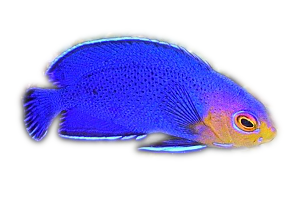
By Bob Goemans

Hi there Bob,
I like your website because it give me a good idea about the hobby and many of its animals - thank you. I don't now how to start, but I have two tanks, one of them a hospital tank and the other a reef. I have started this reef tank (about 150 gallons) with some live rock and some cleaner shrimp and what I think is a Dusky Wrasse. I want some corals, but my tank is not ready yet. I have seen about 20 baby cleaner shrimp and I try to get them fast and put them in my small tank, but I have no idea about what they eat and what they need to grow up with good health. Please, can you give me some info to let the babies grow and live and how can I know if they need the mother? And how can I know if other mothers have eggs? Have included some photos, however, they are quite poor in quality. I need help about this as soon as you can.
Yours,
Abdullah
Kuwait
Dear Abdullah,
Thanks for your email, photos, and questions. And even though the photos were quite blurry, I think you're right about the fish being a Dusky Wrasse (Halichoeres marginatus).
As for the baby cleaner shrimp (Lysmata amboinensis), they are hermaphroditic spawners (possess both male and female sex organs), therefore all adult members of the group produce eggs and are fertilized by another member of the group. Therefore, any two of these shrimp is sufficient to propagate the species. And it is not uncommon for them to breed in captivity, and I've had several happenings in my tanks. And have had them spawn in small nano tanks where there were no predators, and was still unable to raise them to adulthood even though the tank was fed with the newest and best phytoplankton and zooplankton products. Even the important water quality requirements for molting shrimp, i.e., calcium, alkalinity and magnesium), were always correct. They seemed to simply vanish after becoming about a centimeter in length. In fact, I do not know of anyone who has successfully raised them. But this doesn't mean you can't try, and a quarantine/hospital tank filled with live rock and fed with phytoplankton and zooplankton products and where calcium, alkalinity and magnesium (especially magnesium, because if its not correct, they won't complete the molting process, which they do almost monthly) would be worth at least a try.
Good health and happiness to you and family,
Bob